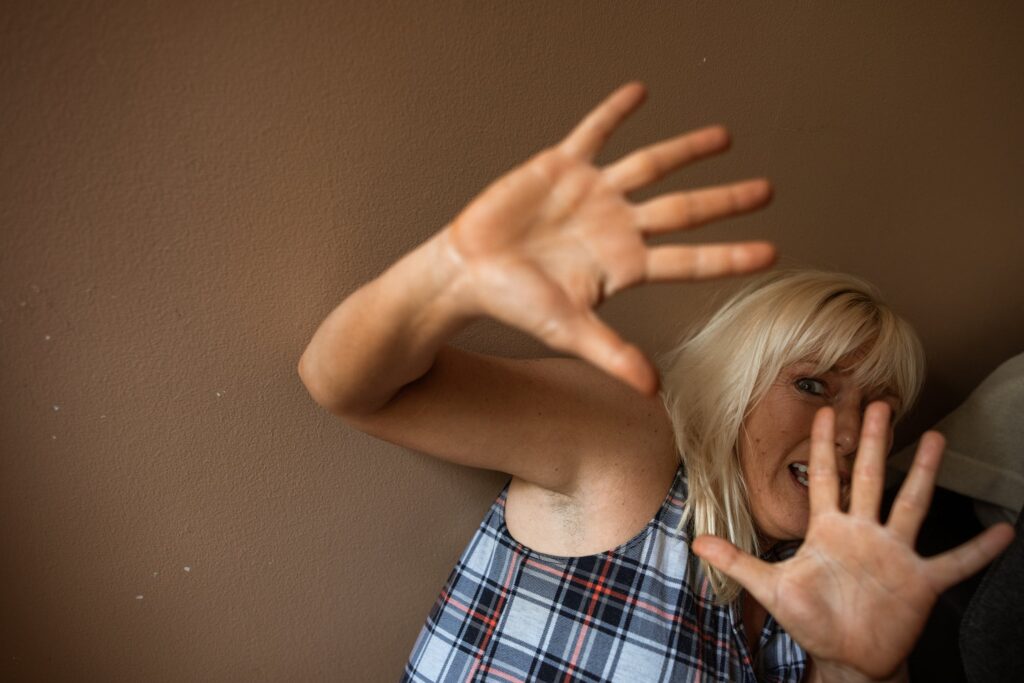
When we think about self-defense, we normally think about protecting ourselves from shadowy strangers. Bogeymen have always been made of the unknown and familiarity often feels safe. In some ways, it’s easier to consider shooting, pepper spraying, or hitting or kicking someone to get them to stop hurting us when they wear a face we don’t recognize. Unfortunately, as Tamara Keel has said before, “Statistically speaking, you probably already know the person from whom you’re most likely to need to defend yourself.” That might mean someone who you know in passing as a neighbor or regular at the same coffee shop, an acquaintance from work or your friend group, a relative, or someone even more intimately close to you. And it’s a whole lot harder on a number of levels when they hurt you and when you need to stop them from hurting you.
There’s a moment, sometimes several, where it’s hard to believe what’s happening. Can it really be that the nice guy from down the block or your adored parent or partner is beating you? We always want to believe that we are surrounded by good people, and that if we know someone, we can know if they are capable of cruelty or violence. It’s nearly always a surprise when we’re wrong. That surprise can be deadly. While our brain locks up and tries to process the incongruity of person you know and person who is trying to kill you, we are unable to defend ourselves effectively. Looking objectively for signs of danger and accepting that you might not know everyone as well as you think you do is an important part of keeping yourself safe from those around you. Think of it as a different kind of situational awareness. Don’t get me wrong – you don’t need to live your life suspicious of everybody in your life and unable to trust anybody. Instead, it’s a matter of being open to red flags instead of making excuses every time you get a twinge. It’s a matter of understanding that when your bodily integrity and your life are at stake, you have the right to protect yourself against anybody, no matter who they are.
Then sometimes you need to convince other people, mutual friends and acquaintances and even strangers, that you really were threatened by this person who did you harm. They may not believe you. They may say you overreacted when you hit, kicked, pepper sprayed, or shot your way out of danger. They may support your attacker and ostracize you. When the bad guy is a person who is in a position of trust and authority and you, well, aren’t, the narrative probably isn’t going to go your way. It’s going to be really rough. I’m sorry in advance if you are put into this kind of situation. I empathize, and I’m here to listen if there’s nobody else who will. I think you’ll be surprised, though. It may not be the folks you thought were in your corner, and it may not be the ones who are very vocal, but I’m betting that you will see some quiet support from people who will believe you and who will help you move past that event. Remember how I said to be open to the red flags? Be open to the green ones too, even if you didn’t expect them from the guy who just texted you a quick check-in.
You yourself may feel incredible guilt and shame, both for the actual act of defending yourself and for missing any warning signals you might have had. It’s a completely normal reaction anytime someone faces violence directed against them, and even more so when it’s by an attacker they know, like, or perhaps love. It simply doesn’t feel right for most people to have to hurt someone who you care about, even if you were acting entirely in morally and legally justifiable self-defense. However, and if you do feel this way, it’s vital that you understand that your guilt and shame are not necessary. I know that’s a super tough ask, and I urge you to seek professional help to really internalize that you are the victim, that you are not at fault in any way for defending yourself properly when push came to shove, that you are strong for doing what you did in the face of the immense internal and external pressures against keeping yourself safe against someone you know. Everyone can probably benefit from therapy, but someone who’s been through that especially so. There’s no weakness in taking advantage of that form of self-care.
I sincerely hope that you will never face violence from anybody, stranger or not. But I also hope that you remember that it’s possible you might, and that you deserve to be safe from anyone who might mean you harm. The specifics of when and how will change, but the core? Just because you love them or they love you doesn’t mean they get to hurt you without consequence.




